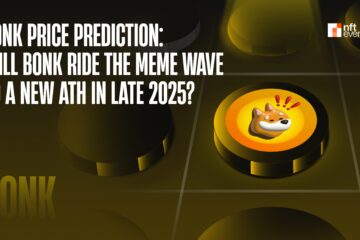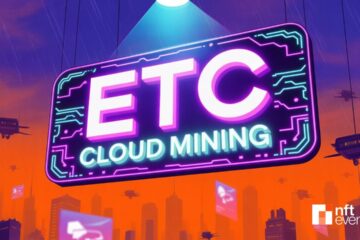Both cryptocurrency and gaming have evolved massively over the past few years. Both industries have seen their own individual growth, but when they intersect, the potential is even more enormous.
Reports indicate that the global gaming industry is now worth over 200 billion dollars and continues to grow year-on-year. Online casino gaming is a big part of this, with online poker and online roulette being big hits worldwide.
Also, the crypto market remains powerful despite its volatility and has been worth trillions at its peak.
Given the potential for opportunity, more gaming companies are exploring crypto-based models, and more crypto firms are seeing the gaming community as an engaged, technologically savvy audience.
There are already some areas where these industries have come together, with examples including blockchain-based games and token rewards systems.
This is just the beginning. Over the next few years, crypto and gaming will continue to work together to redefine how players interact with virtual worlds. In this blog post, we explore some future trends involving crypto and gaming, as well as looking at the potential challenges ahead:
Play-To-Earn Models Will Develop Further
Play-to-earn (P2E) quickly grew in popularity, particularly since early blockchain games showed players they could make real money while playing. But many of those early titles struggled with sustainability, and the hype around them faded almost as fast as it grew.
In the near future, we are likely to see a more balanced version of P2E.
Developers are focusing less on short-term profits and more on creating fun games. Firstly, with crypto integration as a bonus feature rather than the main draw.
Future P2E games will feature token rewards that are tied to in-game achievements, tradable assets and competitive tournaments. These tournaments could have prize pools that are funded through decentralized platforms.
This development could make the model more sustainable and appealing to a wider gaming audience.
NFTs Will Feature More In Gaming
Non-fungible tokens (or NFTs) were previously seen as only collectible art. In the gaming industry, they are now starting to serve a far more practical purpose.
In future games, NFTs will extend beyond profile pictures. They will represent characters, skins, weapons, or even land that players can use and trade within the game.
This level of asset ownership gives players a real sense of investment in the game. For example, a player who has spent hours unlocking an in-game sword would then be able to sell or trade it in a decentralized marketplace for real value.
This kind of innovation means that players will be engaged for longer and helps games build long-term communities.
The Rise of Cross-Platform Marketplaces
At the moment, most in-game purchases are locked to one platform or game. So when you stop playing, those digital items lose all their value. With crypto and blockchain technology, future games could let players carry their assets between titles or sell them on shared marketplaces.
A unified gaming economy that is powered by crypto is gaining popularity. It would allow gamers to have proper ownership of their digital goods, which many would see as a massive improvement on how it currently works.
Decentralized Gaming Communities
Cryptocurrency is built on decentralization, and that is now starting to make its way into gaming. Future gaming communities will rely less on centralized companies and more on decentralized autonomous organizations (DAOs).
This would allow players to vote on updates, control treasury funds, or decide on tournament structures. Players will therefore have more power and involvement, helping to make communities feel stronger and more invested in the success of their games.
Game developers will still lead in creative direction, but governance of games could be shared in new ways that help to foster loyalty.
Increased Partnerships Between Developers
Some of the biggest gaming companies are now exploring partnerships with crypto platforms. These collaborations could enable new payment options, exclusive NFT drops, and branded in-game experiences. They will also present smoother ways to integrate tokens into gameplay.
For example, big crypto exchanges could sponsor esports events, create co-branded gaming products, or even power secure player-to-player marketplaces.
What Potential Challenges Lie Ahead?
There are still a number of obstacles to overcome, including regulation. Different countries have different laws around crypto, which can make global integration difficult.
Volatility is another issue, as the value of tokens and NFTs can fluctuate significantly. This might discourage casual gamers from investing too much.
There is also some concern over oversaturation. If every game pushes tokens and NFTs without offering quality gameplay, players may lose trust. It is important that these platforms continue to balance fun with financial features, so it feels natural and rewarding rather than forced.
Lastly, there is the challenge of security as digital assets grow, so does the risk of scams and hacks.
Together, these two industries have a huge amount of potential, and both are evolving at a rapid pace.
 Bitcoin
Bitcoin  Ethereum
Ethereum  Tether
Tether  XRP
XRP  USDC
USDC  TRON
TRON  Lido Staked Ether
Lido Staked Ether  Dogecoin
Dogecoin  Figure Heloc
Figure Heloc  Cardano
Cardano  WhiteBIT Coin
WhiteBIT Coin  Bitcoin Cash
Bitcoin Cash  Wrapped stETH
Wrapped stETH  Wrapped Bitcoin
Wrapped Bitcoin  USDS
USDS  Wrapped eETH
Wrapped eETH  Binance Bridged USDT (BNB Smart Chain)
Binance Bridged USDT (BNB Smart Chain)  Chainlink
Chainlink  Monero
Monero  LEO Token
LEO Token  WETH
WETH  Zcash
Zcash  Stellar
Stellar  Hyperliquid
Hyperliquid  Coinbase Wrapped BTC
Coinbase Wrapped BTC  Ethena USDe
Ethena USDe  Litecoin
Litecoin  Sui
Sui  Avalanche
Avalanche  Hedera
Hedera  sUSDS
sUSDS  Shiba Inu
Shiba Inu  USDT0
USDT0  Dai
Dai  Canton
Canton  Uniswap
Uniswap  PayPal USD
PayPal USD  Mantle
Mantle  Cronos
Cronos  Toncoin
Toncoin  World Liberty Financial
World Liberty Financial  Ethena Staked USDe
Ethena Staked USDe  Polkadot
Polkadot  USD1
USD1  Aave
Aave  Rain
Rain  Bitget Token
Bitget Token  MemeCore
MemeCore 


